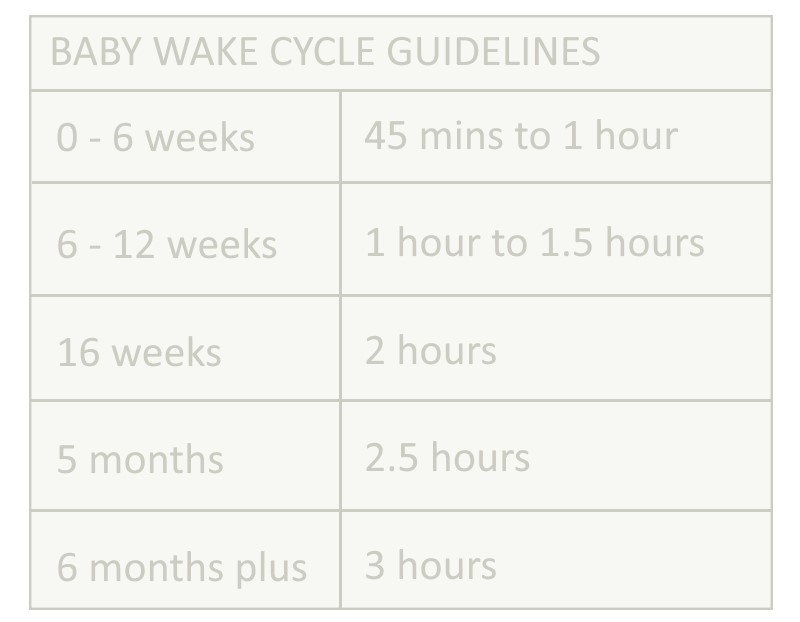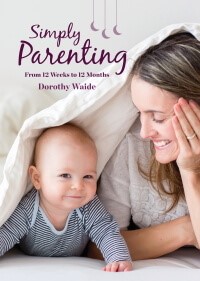How do baby's wake cycles impact their sleep patterns?

Dorothy Waide shares her advice on how to establish a sleep routine by tuning into your baby's wake cycles.
I am often asked what helps a baby to get into a rhythm with waking and sleep cycles and if tracking wake cycles is important. Yes, for some people they are and for others they are happy to flow with whatever. Remember, there is no right or wrong way to parent, however in my opinion there are easy ways and hard ways.
"When do babies need routines and when do we need to show them how to resettle and fall asleep (self-soothe)?" "When can a baby sleep through the night?" These are other very common questions. A very good place to start with all of the above, is by paying attention to your baby’s wake cycles, think of this as your first step to achieving optimal sleep patterns in the long run.
The start of the day is where your routine begins – it’s far better to focus on the day’s start time than attempt to work towards a specific evening bedtime with little babies. The wake cycles will be a consistent length and the naps will fit in between. Do all babies need to be awake the same length of time at the same age? Absolutely not. Anything to do with baby, toddler and child sleep education is a guideline only and then you use the tools that you have and make it work for you.

If you are looking for tired signs (pulling at ears, closing fists, yawning or rubbing eyes, jerky movements etc) to know how long their wake cycles should be, ensure they’re not actually hungry instead. Don’t be put off offering them a feed at the end of their wake cycle. Yes they may fall asleep, feeding to sleep isn’t bad! It’s a parent’s choice to feed to sleep, you are in control of this. If your baby is starting to fall asleep and you don’t want them to, take them off and re latch/wake them up a bit if they are still feeding, otherwise pop them off and put them down to bed.
As your baby grows, you need to be able to determine when to stretch these wake cycles out to move into the next age range. When I’ve established they need to be extended (under-tired, hard to get to sleep, cat napping etc), I tend to stretch their wake cycles out by 15 minutes approximately every 10 days – go slow, take your time and listen to your baby and what their quality of sleep is telling you. As your baby gets older (6 months plus) their wake cycles may stay the same until they drop to one big midday nap (usually around 12-18 months).
Having a flexible routine that benefits the whole family is what you’re working towards here. In any relationship whether it is a work relationship, marriage or friendship, you have boundaries. I firmly believe in the benefits of having ‘baby boundaries’ in place with your baby (aka a routine). This should be created with how you choose to parent in mind, but I do believe that using wake windows is one of the most crucial parts of the puzzle.


Dorothy Waide is a Karitane Mothercraft Nurse with over three decades of experience. Dorothy is the author of two popular parenting books, You Simply Can’t Spoil a Newborn and Simply Parenting: From 12 Weeks to 12 Months. Visit Dorothy at babyhelp.co.nz and check out her facebook page facebook.com/BabyWithin and join her closed pages for 0 to 12 weeks, 12 weeks to 12 months and 12 months plus.

AS FEATURED IN ISSUE 59 OF OHbaby! MAGAZINE. CHECK OUT OTHER ARTICLES IN THIS ISSUE BELOW

















